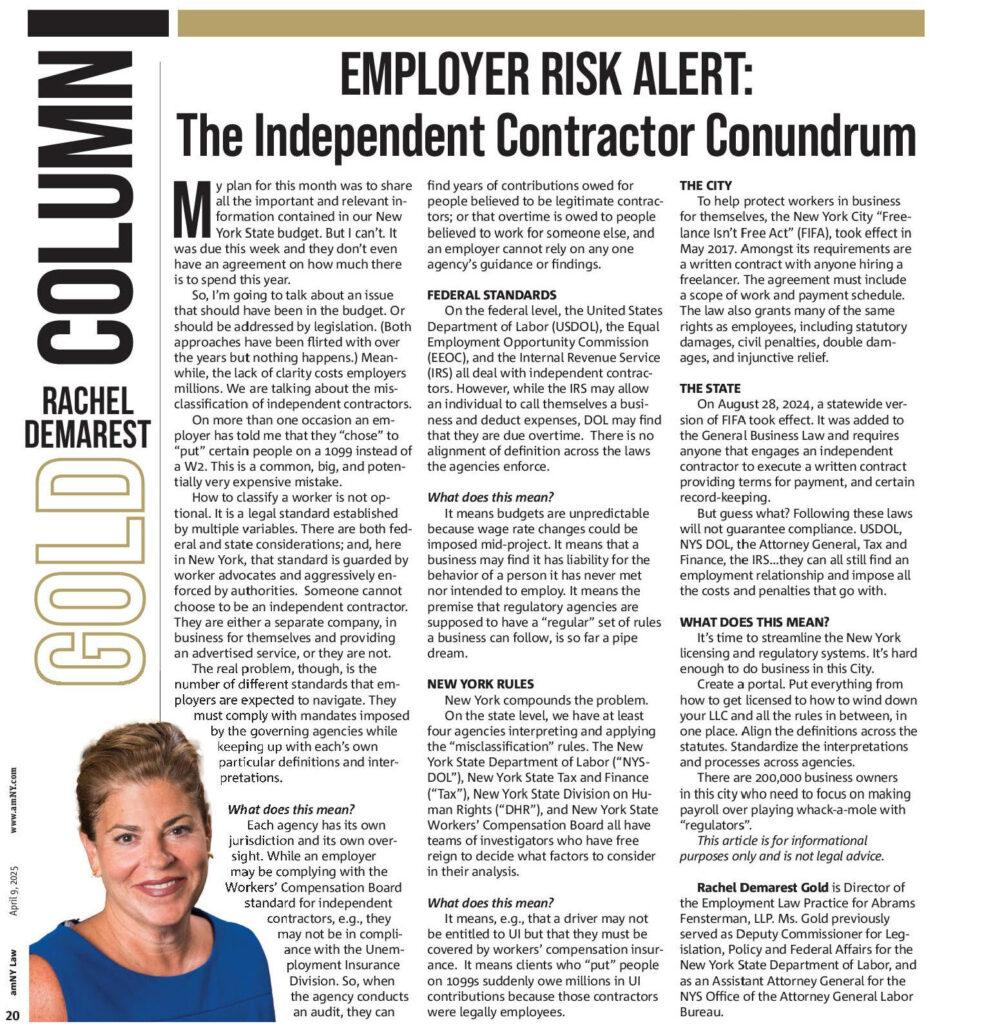In this first in a series of articles discussing important topics in the area of medical malpractice, my 10 commandments for physicians is an appropriate starting point.
The “commandments” set forth below are a composite of the most important rules a physician should follow if he or she has been sued for malpractice.
Thou shall document, document, document
This commandment relates to your practice before you are ever sued. There is an adage amongst physicians and malpractice attorneys: “If it isn’t in the chart, it never happened.”
It is critical that you document test results and interpretations (especially any positive findings), conversations with the patient, recommendations and referrals made to the patient, and any non-compliance by the patient. Your failure to document these important interactions may make it more difficult for you to convince a jury that you acted within the standard of care should a patient allege that you failed to recognize and advise him or her of important test results, or that you failed to make necessary recommendations or referrals.
No one has ever accused a physician of “over-documentation.”
Thou shalt not change (add to, subtract from, modify or alter in any way) your patient record
Notwithstanding the first commandment, you should never change or alter your patient record after the fact – especially after you have been sued. Plaintiffs’ attorneys are always on the lookout for evidence of altered records, and they employ very sophisticated and well-trained forensic document examiners to assist in this endeavor.
There have been many cases where physicians altered their patient chart after being sued, only to have such alterations discovered by plaintiff’s attorney. Jurors who believe that a physician altered his patient record in order to avoid a malpractice claim will not appreciate such duplicity.
As I tell my clients, the easiest way to turn a defensible case into a losing case is to allow the plaintiff’s attorney to show the jury that you altered your records. And the easiest way to turn a low-six-figure case into a multi-million dollar case is to have a jury believe that you altered your records.
Thou shalt notify your carrier as soon as possible
Your malpractice insurance policy contains a requirement that you notify them as soon as you become aware of a claim against you. Failure to give your carrier timely notice of a claim will provide the carrier with grounds to disclaim any coverage for the claim. That means no coverage for any settlement or judgment, and no coverage for your defense costs. Ouch! As soon as you are served with legal papers commencing a malpractice lawsuit against you, get those papers to your malpractice carrier so that it can open a claim file and assign counsel to protect your interests.
Thou shalt not attempt to contact the plaintiff or his family members
You have treated the plaintiff and his family for many years, and they seem like old friends. Then, unexpectedly, you are served with a malpractice suit by one of them. Your immediate response is to call up the patient and ask why he is suing you, hoping to talk him out of it. Don’t bother. Once you have been served it’s too late to have that discussion. A plaintiff’s attorney has already gotten your patient’s attention and has convinced your patient that you are responsible for his injuries and deserve to be sued. To paraphrase Joe Friday from the old Dragnet television show, anything you say to the patient at this point “can and will be used against you in a court of law.”
Thou shalt be a realist … not an idealist (recognize and acknowledge any weaknesses in your case)
While no one likes to hear that he or she could have or should have done things differently, and maybe better, you have to be a realist. Nobody is perfect, and occasionally everyone makes mistakes – sometimes small mistakes, sometimes big mistakes. If there are weaknesses in your case, understand them and acknowledge them. Take a dispassionate and realistic view of how those weaknesses impact your exposure in the case. Then multiply it by 10 to get an idea of how the plaintiff’s attorney will spin it.
Thou shalt be an active partner with your attorney in your defense
When it comes to defending yourself in a malpractice action, as the saying goes, you are not a “potted plant.” Be active in your defense. Stay abreast of significant developments. Keep in touch with your attorney on a regular basis to find out what has been happening. Actively participate with your attorney in formulating strategies to defend yourself.
Thou shalt always remember: “It’s not personal, it’s just business”
As callous and jaded as this may sound, a malpractice case is, in the final analysis, about one thing and one thing only: money. It is not about vindication for either side. It is not about honor. It is not about justice. It is about money. The amount of money it will take to resolve a case is almost always controlled by the plaintiff’s attorney, and to the plaintiff’s attorney this is about business … his business. He doesn’t wish you well; he doesn’t wish you ill. He wants to make the most money he reasonably can on your case, given the facts and the injuries, before he moves on to the next case.
Thou shalt attend the trial every day
Most jurors do not want to be sitting in the courtroom day in and day out. They want to be at their jobs earning a living, or they want to be with their families, or they want to be sitting on the beach. But they are forced to be there to decide your case. Imagine how they will feel about you if you do not show enough respect for their sacrifice to be there in the courtroom with them each and every day. Now imagine putting your financial future in the hands of those jurors. Attend the trial every day, even if it means closing your office for a few weeks. The financial hardship of doing so is real, but the prospect of alienating your jury should be a sobering counterbalance.
The trial is a real life play; Thou shalt follow my direction
A trial is a real-life drama played out in a courtroom. You may or may not have ever been involved in a malpractice case before. I have handled hundreds over the past 34 years, so I have an idea of how to present a case and how to conduct oneself at trial. I know what the issues will be at trial, and I know how the plaintiff’s attorney intends to present those issues to the jury.
As we prepare for the trial, I will tell you what to say and how to say it. I will tell you what to wear. I will tell you who to look at when you are speaking. A trial is not the time for ad-libbing. It is a time to craft a carefully worded script and to stick to that script. Follow my direction and you will have the best chance of success.
Thou shalt not despair an adverse verdict
The verdict has come in and it is in plaintiff’s favor. Does that mean all is lost? Not by a long shot.
There are a number of opportunities to challenge an adverse jury verdict. There is a post-trial motion available to challenge the verdict. There is an appeal available to challenge the decision on the post-trial motion. There is even settlement opportunity after the verdict.
Do not despair an adverse verdict … it is just the end of one battle in the war that is a medical malpractice case.
Michael S. Kelton, Esq. is partner in the New York law firm of Abrams Fensterman Fensterman Eisman Formato Ferrara & Einiger, LLP, where he is the Director of the firm’s Medical Malpractice Defense Department. For more information about Mr. Kelton or the topic discussed in this article you may contact Mr. Kelton at [email protected].
Abrams Fensterman Fensterman Eisman Formato Ferrara & Einiger, LLP provides legal services for the health care industry throughout New York, New Jersey and Connecticut. To learn more about the firm and its practice areas please visit our site.
This was originally published on Physiciansmoneydigest.com. Distribution or re-transmission without written consent of the copyright owner is prohibited. Copyright Intellisphere, LLC.





